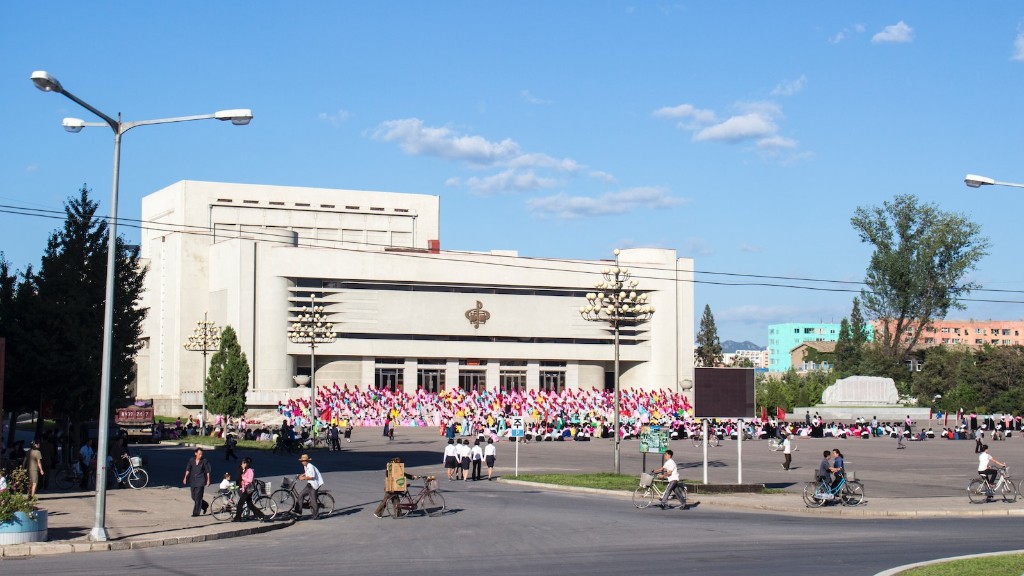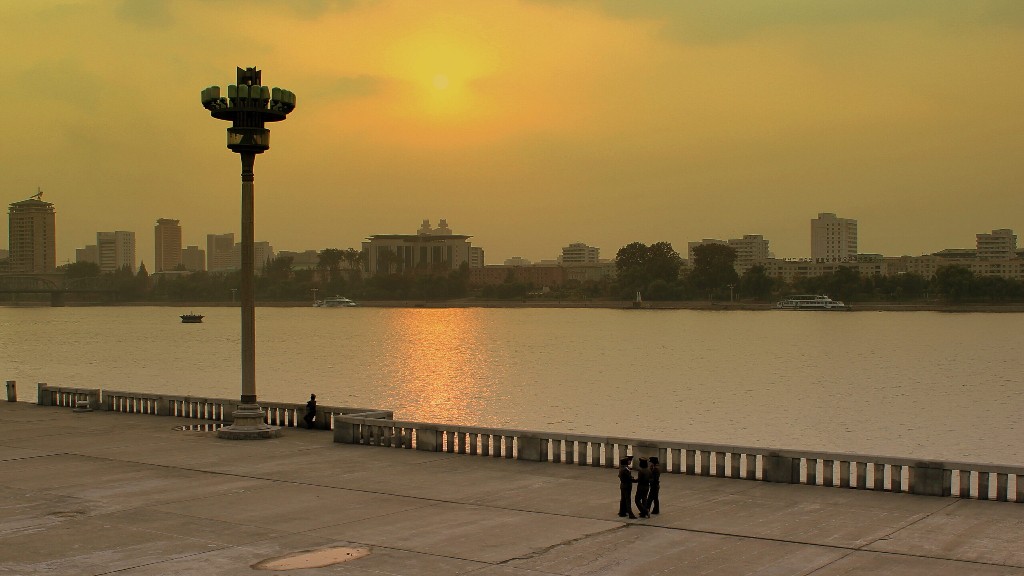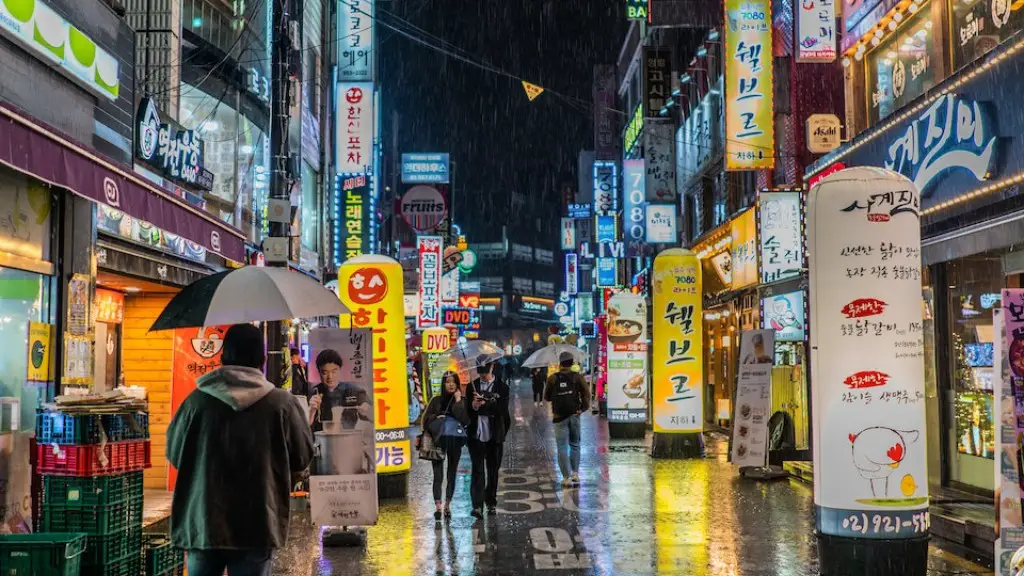The United States and North Korea have been in a state of high tension over the past few years, as the latter has continued to develop their nuclear arsenal in defiance of international sanctions. This has led to growing concern and speculation around the world over how to contain the North Korean threat. In 2018, tensions appeared to take a dramatic turn for the better.
The first sign of change came in April, when the leaders of North and South Korea emerged from a historic summit in the Demilitarised Zone, their hands clasped in a show of unity. Then in June, US President Donald Trump made history when he became the first sitting US president to set foot in North Korea. The two leaders then had a landmark summit in Hanoi, Vietnam.
Despite the progress made, however, talks between the two sides ultimately collapsed without a deal in place. North Korea was reportedly seeking relief from sanctions in exchange for partial denuclearisation, while the US seemed unwilling to do so. Nevertheless, President Trump expressed positivity, saying that “sometimes you have to walk.”
Since then, there have been reports of fresh diplomacy between the US and North Korea. US Secretary of State Mike Pompeo has expressed optimism that an agreement can be reached, and that the US is “prepared to do the hard work to get there.”
The UN has also expressed hope for a return to talks, saying their commitment “to peace and stability on the Korean Peninsula remains undiminished.” North Korea also appears eager to renegotiate, with leader Kim Jong Un reportedly saying his country “remains unchanged in its willingness to denuclearise.”
Experts, however, remain sceptical that the two sides can reach an accord that satisfies both sides. Some point to the unstable leadership in both countries, with President Trump’s unpredictable temperament seen as a significant obstacle to progress. There are also concerns that North Korea is continuing to develop its nuclear arsenal, in spite of its diplomatic talks with the US.
The Regional Impact
The situation with North Korea continues to have far reaching consequences for the region. The country’s nearby neighbours have grown increasingly wary of its nuclear ambitions, with South Korea in particular worried about the potential for a conflict breaking out on the Korean peninsula. Japan is also on alert, although it has of late sought to open diplomatic channels with North Korea.
The US and China have also found themselves drawn into the events, with the former seen as the main backer of South Korea, and the latter a key regional power. China has reportedly warned North Korea against any “unilateral” actions, while the US has called on Beijing to put more pressure on Pyongyang.
The events have also raised broader questions about the efficacy of sanctions as a tool for containing North Korea. The international community imposed strict sanctions on the country in recent years in an effort to curb its nuclear capabilities, yet North Korea has continued to develop its weaponry. It thus appears that a new approach may be necessary if the situation is to be resolved.
Meanwhile, the events have also illuminated the deep divisions in the international community when it comes to dealing with North Korea. Russia and China have both sought to distance themselves from US policy on North Korea, while the US has accused its European allies of not doing enough to help contain the country’s nuclear weapons programs.
The Potential for War
Amid the persistent tensions, there are growing fears of a potential conflict breaking out in the region. Both North and South Korea have sizeable armed forces, and the US has further bolstered its presence in the region with its “maximum pressure” campaign. Meanwhile, North Korea has continued to conduct missile tests, even after its summit with the US.
In spite of the sabre-rattling, experts believe that war is still unlikely. North Korea is believed to be aware of the devastating consequences that a conflict would bring, and so there is a greater incentive to pursue a peaceful resolution to the crisis.
Nevertheless, the potential for miscalculation remains, particularly in light of President Trump’s declared willingness to use military force. It thus appears that the situation on the Korean peninsula is still very much in a state of flux.
The Humanitarian Impact
The situation with North Korea also has a profound humanitarian impact, with the people of the country bearing the brunt of the sanctions imposed by the international community. Reports suggest that the sanctions are having a drastic effect on the country’s economy, leading to shortages of food, medicine, and fuel.
Furthermore, those attempting to leave the country, including refugees and defectors, face serious danger due to the strict laws enforced by the North Korean government. Despite this, many continue to make the perilous journey in search of a better life.
The international community has sought to respond to the situation, with the UN launching an appeal in 2018 for $111 million to support those in need in North Korea. However, there are fears that the sanctions, while seemingly effective in containing the country’s nuclear ambitions, are having a devastating effect on the people.
The Way Forward
Moving forward, there is much that the international community can do to address the situation in North Korea. The UN and its Security Council have been at the forefront of diplomatic efforts, yet the sanctions have so far failed to alter the North Korean government’s behaviour.
More needs to be done to address the humanitarian crisis in the country, while world leaders must also seek to find a diplomatic resolution that is acceptable to both the US and North Korea. The international community must also remain vigilant to any potential military confrontations, while also seeking to reduce the risk of miscalculation.
The Role of China
China has assumed an increasingly significant role in the North Korea crisis in recent years, with the country seen as having considerable influence over the isolated nation. Beijing has maintained warmer relations with Pyongyang than many of its regional rivals, and has sought to play a mediatory role in the situation.
Despite their good relations, however, Beijing has also been increasingly vocal in criticising North Korea’s nuclear ambitions. China has backed economic sanctions against Pyongyang, and has supported the UN’s security council resolutions against the country.
At the same time, China has sought to broker a peaceful resolution to the crisis. It has come out in support of the US-North Korea summit in Hanoi, although it has also warned that Washington must be “flexible” in its approach. Beijing has also sought to engage North Korea on issues such as the economy, with the two countries signing numerous agreements in recent years.
In any case, it appears that China will remain a key player in the crisis moving forward. With tensions between the US and North Korea still running high, Beijing’s role in brokering a diplomatic agreement may prove crucial.
Conclusion
The situation on the Korean peninsula remains precarious, with US-North Korean tensions remaining high. Recent diplomatic developments have provided some hope for a peaceful resolution, yet the human cost of the conflict continues to be felt by the people of North Korea. The international community must now continue to search for a diplomatic solution, while at the same time exploring ways to address the humanitarian crisis in the country.





